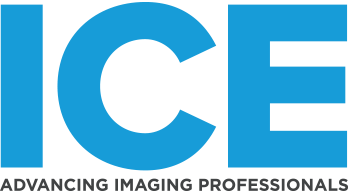
By Melody Mulaik
 Most commercial payers require prior approval before the performance of an advanced imaging study in order to provide payment. At the present time, Medicare does not follow this same process. Instead, they continue to instruct providers to issue an Advance Beneficiary Notice (ABN) to inform patients of their known or potential financial responsibility. The ABN is a written notice you should issue to a fee-for-service beneficiary before furnishing items or services that are usually covered by Medicare but are not expected to be paid in a specific instance for certain reasons, such as lack of medical necessity.
Most commercial payers require prior approval before the performance of an advanced imaging study in order to provide payment. At the present time, Medicare does not follow this same process. Instead, they continue to instruct providers to issue an Advance Beneficiary Notice (ABN) to inform patients of their known or potential financial responsibility. The ABN is a written notice you should issue to a fee-for-service beneficiary before furnishing items or services that are usually covered by Medicare but are not expected to be paid in a specific instance for certain reasons, such as lack of medical necessity.
The ABN gives the patient the opportunity to choose whether to receive the service. If the patient chooses to receive the service and Medicare does not pay, the patient is responsible for payment. On the other hand, if the provider does not give the patient an ABN, the provider cannot bill the patient for any services that are denied by Medicare due to medical necessity.
The proper use of ABNs is very important in radiology since many radiology claims are denied for medical necessity – specifically, the lack of a covered diagnosis. CMS has instructed providers to use ABNs only for patients enrolled in original (fee-for-service) Medicare, not Medicare Advantage (Medicare managed care). Unless the patient’s payer instructs otherwise, providers should not issue ABNs to non-Medicare patients.
Briefly, the provider must issue a mandatory ABN when Medicare usually covers the item or service, but the provider believes Medicare may deny payment because the item or service is not considered medically reasonable and necessary for this patient in this particular instance. For example, if the exam is not covered for headaches, Medicare will not pay for an exam ordered due to headaches unless the radiologist identifies a covered condition that caused the headaches.
ABNs can be issued on a voluntary basis for services that are excluded from Medicare coverage by law. Examples of these statutorily excluded services include routine physical exams, most screening tests (other than covered tests like screening mammograms), cosmetic services, routine dental and vision services, etc.
An ABN should not be issued if the provider does not have a specific reason to believe the service will be denied. Providers are not permitted to issue routine or “blanket” ABNs to all of their Medicare patients. An ABN cannot be issued after the exam has already been performed, or when the patient has already been prepped and is about to begin the exam. The ABN must be provided far enough in advance that the patient has time to consider the options.
Also, an ABN cannot be used to make the patient pay for a bundled service or for services in excess of the Medically Unlikely Edit (MUE) limits. Payments for bundled services are already included in the Medicare payments for other associated services, so the provider cannot collect an additional payment. For example, it would be inappropriate to ask a patient to sign an ABN for intravenous injection of a radiopharmaceutical for a bone scan, since the injection is included in the scan code.
Finally, a patient cannot be asked to sign an ABN if the patient is unable to read and understand the form. For this reason, ABNs should not be given to patients who are blind, illiterate or demented.
The imaging facility can issue an ABN that covers both the technical component and the professional component of the imaging exam. This means that a hospital can issue an ABN that also covers the radiologist, even though the hospital does not bill for the radiologist’s professional services. In this situation the radiologist’s contact information should be included on the ABN. An ABN can also be issued by the ordering physician if the physician is aware that the exam is likely to be noncovered though it would be rare to see this occur.
Melody W. Mulaik, MSHS, CRA, RCC, RCC-IR, CPC, COC, FAHRA, is the president of Revenue Cycle and Coding Strategies Inc.








